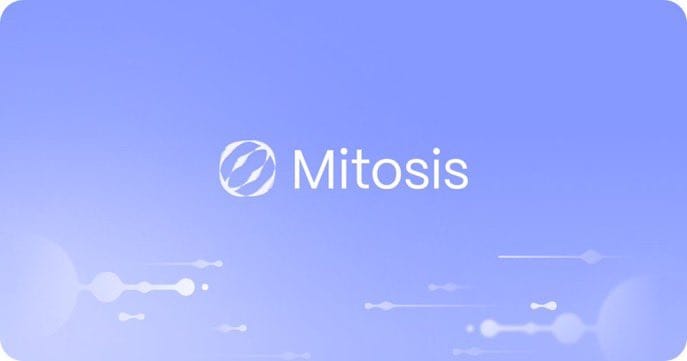The Power of Peer Learning: How Mitosis University’s Community Shapes the Next Wave of DeFi Innovation
Introduction
In traditional education, knowledge flows top-down: teachers lecture, students listen, and textbooks dictate what matters. But in the world of decentralized finance (DeFi), innovation thrives when learning is collaborative, fluid, and bottom-up. Enter Mitosis University, a hub where peer learning isn’t just encouraged—it’s foundational. DeFi moves fast. Protocols evolve overnight, yield strategies change with market winds, and tokenomics is constantly recalibrated with each TGE (Token Generation Event). In this environment, community contributions—case studies, strategies, governance debates—aren’t supplemental; they are essential. Mitosis University recognizes this and provides a platform where users, not just instructors, lead the way. This peer-powered model empowers a farmer in Kenya to share how he uses stable coins for crop payments or allows a developer in India to teach NFT-based staking using smart contracts on Solana. By enabling such stories to shape the curriculum, Mitosis University builds an agile, inclusive, and constantly evolving ecosystem. Let’s explore how this vibrant knowledge exchange is transforming DeFi learners into creators, builders, and thought leaders.
Learning by Sharing: User-Created Content as a Catalyst
. Real-World Case Studies: From Experience to Education
Instead of relying solely on theory, Mitosis University invites users to share real-life applications of DeFi principles. These case studies—ranging from liquidity provision in volatile markets to leveraging wrapped tokens across chains—serve as practical blueprints for others. They offer a view into how different people interact with DeFi based on regional challenges, personal risk appetite, and resource availability.
Example: A case study from a Turkish user explains how she hedged inflation by shifting savings into miAssets like miUSDC and miDAI. By staking them in a liquidity pool, she generated passive income and avoided local currency devaluation. Her guide now helps others replicate her yield strategy under similar economic conditions.
. Open-Source Yield Strategies: The GitHub of DeFi Learning
Yield farming is an art and a science. With thousands of possible combinations of tokens, liquidity pools, and chains (like Solana, Arbitrum, or Ethereum), discovering optimal strategies is hard. Mitosis University combats this complexity by curating user-submitted yield strategies. These strategies, complete with TVL data, gas fee analysis, and liquidation risks, are discussed, refined, and even simulated on the platform’s testnet.
Example: A yield strategy using miETH and miUSDT in a 60/40 pool across Solana and Arbitrum helped users achieve 14% APY with minimal impermanent loss. Created by a South Korean developer, the guide included smart contract templates and p2p swap setups. It quickly became a community favorite and sparked forks into other chains.
Collaboration Breeds Innovation
. Crowdsourced Governance: Shaping the Protocol Together
Governance in Mitosis isn’t limited to whales or insiders. Every user, regardless of portfolio size, can propose, vote, and shape future upgrades. This is made possible by the DAO structure and bolstered by peer-led proposal workshops hosted on Mitosis University. These sessions help users understand the nuances of voting weight, total supply distribution, and proposal impact.
Example: A small business owner in Argentina proposed a governance change to reallocate EOL across chains to improve TVL stability during regional liquidity crises. After open debate and simulations shared on the University’s forum, the proposal passed. This wasn't just democracy in action—it was community-driven innovation
. Hackathons and Buildathons: Learning Through Creation
Mitosis University regularly organizes DeFi hackathons where teams of learners co-create dApps, smart contracts, or NFT ecosystems. Whether it’s a tool to visualize wrapped token flows or a dashboard to monitor TVL across miAsset pools, these events foster peer learning through collaboration. Participants share insights, debug each other’s code, and improve both technical and strategic understanding.
Example: During a Buildathon in Lagos, three students created “miScout,” a mobile dashboard that tracks EOL movement, TGE alerts, and miAsset performance across networks. The app—developed with no prior blockchain coding experience—was made possible through peer mentoring and access to Mitosis University’s resources.
Empowering the Next Wave of Educators and Builders
. Becoming a Peer Mentor: From Learner to Leader
Many Mitosis University users graduate into becoming mentors. After completing modules on tokenomics, liquidity provisioning, and DAO governance, they host AMAs (Ask Me Anything sessions), create their own mini-courses, or guide newcomers through testnet setups. These peer mentors are rewarded not just with tokens, but reputation and recognition within the ecosystem.
Example: A mentor in the Philippines who started by asking basic questions about staking miAssets now runs a weekly community session on Telegram, helping over 1,000 users navigate cross-chain DeFi operations using smart contracts on Solana and Base.
. Building Reputation Through NFT-Based Certification
In a unique twist, Mitosis University issues NFT-based credentials that reflect your learning and contributions. These NFTs are dynamic—changing appearance based on your activity, governance participation, or successful DeFi experiments. This turns learning into a gamified, socially shareable experience that carries weight across the ecosystem.
Example: A Nigerian learner earns an NFT for contributing a high-performing yield strategy, which boosts their visibility. They’re later recruited by a DeFi startup building on top of the Mitosis protocol. The credential serves as a verifiable badge of expertise—one not issued by a central authority but validated by the community.
Conclusion
Education doesn’t have to be passive. In DeFi—where the only constant is change—learning must be agile, hands-on, and above all, collaborative. Mitosis University has reimagined education for the decentralized era, proving that peer learning is not just effective but essential. Through shared yield strategies, community governance, case studies, and mentor-led sessions, the platform fuels an ever-evolving ecosystem of builders, thinkers, and doers. No matter where you're from or how much crypto you hold, your voice, your questions, and your experiences matter. Whether you're designing a smart contract for a p2p NFT marketplace or voting on a new EOL allocation, your participation shapes the future of DeFi—and Mitosis University is where that journey begins.


Comments ()